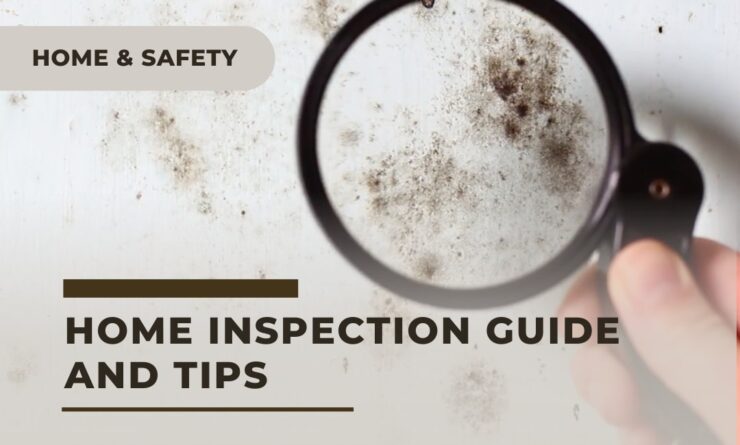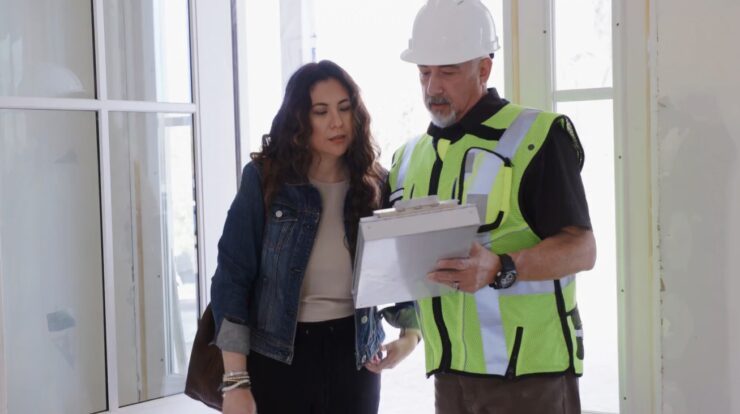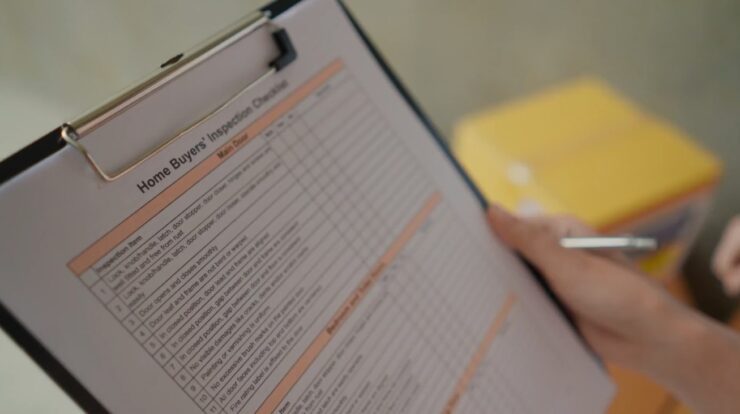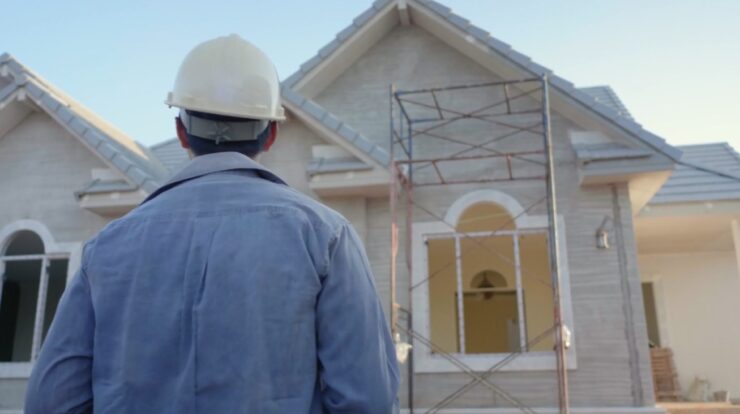When you’re on the verge of buying a house, the idea of another expense might seem daunting. However, most experts in the real estate field strongly advise getting a professional home inspection. This isn’t just an added cost; it’s a crucial step to understand the true condition of the property and any hidden issues.
You might think about skipping the inspection, especially if you’re eyeing a popular property or trying to save some bucks and time. But think twice! The inspection is a vital step in gathering insights before sealing the deal on a home.
Given that buying a home is probably the biggest investment you’ll ever make, spending a bit more now on a thorough check can save you a lot of money down the line.
In a nutshell: Home inspections are worth every penny. They give you a clear picture of your potential new home and can save you from future headaches and unexpected costs.
| HOME INSPECTION COST | |
|---|---|
| Average Cost | $340 |
| Lowest Cost | $200 |
| Highest Cost | $500 |
Average cost of a home inspection?
- Geographical Location: The average cost nationwide is around $341. However, this can range from as low as $199 to as high as $500 or even more. For example, in New Jersey, the average cost is about $420.
- Size of the Home: Larger homes, around 2,000 square feet or more, typically cost around $400 for an inspection. On the other hand, a smaller condo might only set you back about $200. Some inspectors have a set rate for homes up to a certain size and then adjust the price for bigger properties.
- Age of the Home: Older homes might have outdated wiring or plumbing that needs a closer look to ensure they meet current standards. Because of this, inspectors might charge more for these properties.
- Uniqueness and Distance: If a home has unique features or if the inspector has to travel a significant distance, the cost might increase.
- Experience of the Inspector: Like many professions, more seasoned home inspectors might charge a premium for their expertise compared to those just starting out.
In summary, while the average cost of a home inspection is $341, several factors can influence this price. It’s always a good idea to get a few quotes and understand what’s included in the fee before making a decision.
| HOME SIZE | |
|---|---|
| <1,000 square feet | $200 – $250 |
| 1,000 square feet | $250 – $300 |
| 1,500 square feet | $300 – $400 |
| 2,000 square feet | $400 – $500 |
| >2,000 square feet | $500+ |
Is a Home Inspection Necessary?
While the law doesn’t mandate home inspections, they can be a lifesaver for buyers, especially if you’re new to the home-buying process. Think of it as a deep dive into the property’s health, revealing any hidden ailments or potential issues.
You might wonder, “Don’t sellers have to point out major problems?” In many places, they do. However, not all sellers are honest, and some might be unaware of lurking issues in their homes. Just because a problem isn’t visible doesn’t mean it’s not there.
Frank Lesh, a seasoned home inspector from LaGrange, IL, and a representative for the American Society of Home Inspectors (ASHI), puts it aptly: “Homes don’t come with a ‘check engine’ light.” There could be underlying issues that neither the seller nor the potential buyer knows about.
In short, while it’s not a legal requirement, a home inspection is a smart move to ensure you’re making a sound investment and not walking into a money pit.
How Long is a Home Inspection?
A home inspection usually lasts between three to four hours. Once you’ve signed a purchase and sale agreement, it’s wise to quickly arrange an inspection. This ensures you get the report before the option to terminate the agreement runs out.
Being present during the inspection is beneficial. It allows you to see firsthand, ask questions, and provide any relevant information to the inspector. After the inspection, you’ll typically receive a detailed report, often accompanied by photos of any identified issues, within a day or two.
What’s Covered in a Home Inspection?
A home inspection is a comprehensive visual assessment of the property’s key structures and systems. Here’s what it generally covers:
1. Water Damage Detection
-
- Water damage is a major concern. As Lesh points out, misplaced water can render a house uninhabitable, leading to mold growth and wood decay.
- While some leaks, like those from a storm, are evident, others, like slow roof leaks, might take years to manifest. Inspectors are trained to spot signs of past and present leaks.
2. Roof Evaluation
-
- The roof’s condition is thoroughly assessed for any potential leaks or damages.
- Lesh emphasizes that inspectors have no vested interest in the roof’s condition. They simply report what they observe, without any bias, adhering to the ASHI code of ethics.
3. Electrical System Inspection
-
- Electrical issues, if detected early, can be fixed easily and inexpensively. However, neglecting them can be fatal.
- A faulty ground fault circuit interrupter (GFCI) might seem like a minor issue, given its low replacement cost. But its malfunction can lead to electrical shocks. Inspectors ensure every accessible GFCI is functioning correctly.
Comprehensive Home Inspection Checklist According to ASHI:
- Heating System: Ensuring it’s functional and efficient.
- Air Conditioning System: Checking its efficiency and potential issues.
- Plumbing: Identifying leaks, blockages, or other issues.
- Electrical System: Ensuring all components meet safety standards.
- Roof: Checking for damages, leaks, or potential problem areas.
- Attic: Inspecting for insulation, ventilation, and potential pests.
- Visible Insulation: Ensuring it’s adequate and properly installed.
- Walls, Ceilings, and Floors: Checking for structural integrity and potential damages.
- Windows and Doors: Ensuring they seal properly and are in good condition.
- Foundation: Checking for cracks, shifts, or other structural issues.
- Basement: Inspecting for dampness, mold, and structural soundness.
- Structural Components: Ensuring the overall stability and safety of the home.
Specialized Home Inspections: What You Need to Know
While general home inspections cover a broad range of areas, there are certain aspects that require specialized expertise. If a home inspector identifies potential concerns in specific areas, they might recommend additional inspections by specialists. Here’s a breakdown:
- Septic Inspection: Evaluates the condition and functionality of the septic system.
- Well Inspection: Assesses the quality and quantity of well water and the integrity of the well system.
- Radon Inspection: Measures the levels of radon, a radioactive gas that can be harmful in high concentrations.
- Asbestos Inspection: Identifies the presence of asbestos, which can be hazardous if disturbed.
- Lead Paint Inspection: Detects the presence of lead-based paint, which can be harmful if ingested or inhaled.
- Termite Inspection: Checks for signs of termite infestation and damage.
- Soil and Geological Inspection: Assesses the soil quality and geological conditions, which can impact the foundation and overall stability of a home.
In some cases, if there’s a suspected issue with the foundation, a structural engineer or foundation specialist might be called in. They can provide a detailed assessment and offer solutions, along with cost estimates.
New Construction Inspections:
- New homes, even though they’re brand new, also need inspections. This ensures that the construction meets all standards and there are no overlooked issues.
- The inspection covers everything from the foundation to major systems like HVAC, electrical, and plumbing.
- On average, this inspection costs around $340, but prices can vary between $280 to $400.
Costs of Specialized Inspections:
- The fees for these specialized inspections can differ significantly based on the field and the company.
- For instance, a roofing expert might offer a free assessment, hoping to secure the repair job.
- A basic plumbing check might be around $200, as per Angi.
- Structural inspections can be pricier, with costs ranging from $350 to $700 or even more, depending on the scope.
Guide to Selecting the Right Home Inspector
Choosing the right home inspector is crucial to ensure you’re making a well-informed decision about your property purchase. Here’s a step-by-step guide to help you make the right choice:
1. Market Research:
-
- Start by researching the average cost of home inspections in your area. This will give you a ballpark figure and help you identify if a quote is reasonable.
- Some inspectors list their fees online, making it easier to compare prices.
2. Credentials and Affiliations:
-
- Ensure the inspector is state-certified or affiliated with recognized industry associations like ASHI, NACHI, or NAHI. These affiliations often have strict standards that members must adhere to.
3. Experience Matters:
-
- While ASHI requires its members to have completed at least 250 inspections, it’s wise to look for someone with even more experience.
- Angi suggests hiring an inspector with a minimum of 1,000 inspections under their belt and at least three to five years of full-time experience. This ensures they’ve encountered a wide range of home conditions and can provide a comprehensive assessment.
4. Sample Reports:
-
- Request a sample report from potential inspectors. This gives you an insight into their attention to detail and the depth of their assessments.
- A detailed and comprehensive report might be worth a slightly higher fee, as it provides a thorough understanding of the property’s condition.
Recommendations:
-
- While your real estate agent might recommend an inspector, it’s always a good idea to do your own research and ensure there’s no conflict of interest.
- Word of mouth can be invaluable. Ask friends, family, or colleagues for recommendations based on their experiences.
Questions to Ask:
-
- How long have you been in the business?
- How many inspections have you conducted?
- What’s included in the inspection?
- Can I attend the inspection?
- How long will the inspection take?
- When will I receive the report?
FAQs
How much does the average home inspection cost in Florida?
While the article doesn’t specify the exact cost for Florida, the average cost of a home inspection in the U.S. is $342, with prices ranging from $281 to $402. It’s advisable to check local listings or ask local real estate agents for more precise figures for Florida.
How much is a home inspection in Los Angeles?
The article doesn’t provide a specific figure for Los Angeles. However, given that it’s a major city in California, one can expect prices to be on the higher end of the national average. It’s best to consult local inspectors for exact pricing.
How much is a home inspection in Chicago?
The article doesn’t mention a specific cost for Chicago. As with other locations, it’s recommended to check with local inspectors or real estate professionals for accurate pricing.
Who pays for the home inspection in California?
Typically, the buyer pays for the home inspection as it’s for their benefit to understand the condition of the home they’re considering purchasing.
How much does a home inspection cost in New York?
The article doesn’t specify the cost for New York. Given that New York has a mix of urban and rural areas, the cost can vary. It’s advisable to consult local inspectors for a more accurate estimate.
How much is a home inspection in California?
While the article doesn’t provide a specific figure for California, considering its vastness and varying property values, the cost can differ. It’s best to check with local inspectors for precise figures.
How long is a home inspection good for in California?
The article doesn’t mention a specific duration. However, typically, a home inspection report is considered valid for a few months. Market conditions, weather, and other factors can change the state of a home over time.
What inspections are needed when buying a house in California?
Apart from the standard home inspection, buyers in California might also consider specialized inspections like termite checks, radon testing, and seismic evaluations, given the state’s susceptibility to earthquakes. It’s also essential to check for any local or county-specific requirements.
The Bottom Line
Navigating the home buying process, especially in a competitive market, can be challenging. The allure of skipping a home inspection to get ahead might seem appealing, especially when a property is listed “as-is.” However, venturing into a home purchase without a thorough inspection is akin to sailing uncharted waters without a map.
While you might be willing to accept a property with its existing flaws, it’s crucial to know what those flaws are. By reserving the right to an inspection, you arm yourself with knowledge. Even if you assure the seller you won’t demand repairs, understanding the home’s condition is invaluable.
Sometimes it might be better to build a new house, then to buy an old one that is very faulty.
In essence, a home inspection isn’t just another item on the home buying checklist. It’s a safeguard, a tool for empowerment, and a small investment that provides peace of mind. When you’re making one of the most significant financial commitments of your life, knowledge isn’t just power; it’s protection.
















